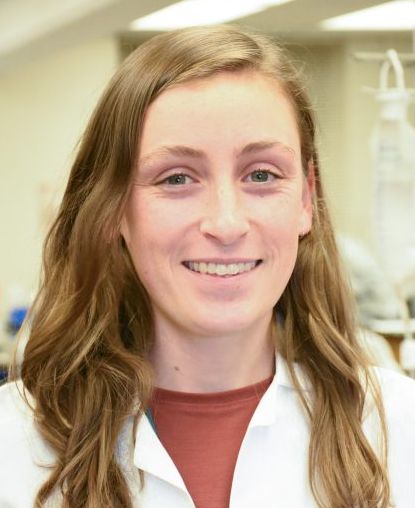
Hometown: Oak Ridge, North Carolina
Undergraduate: UNC-Chapel Hill
What initially sparked your interest in microbiology and immunology?
When I started college, I planned to become a physician. While volunteering in the hospitals and taking pre-med courses at UNC, I took a medical microbiology class that focused on human pathogens, and it completely changed my path. I was fascinated by the organisms and motivated by their direct clinical relevance. The idea of solving medical mysteries through science and helping patients without direct contact was both exciting and deeply rewarding.
How did your background prepare you for the PhD program at Drexel?
After undergrad, I worked in the clinical molecular microbiology lab at UNC Medical Center, where I honed skills in sample processing, polymerase chain reaction (PCR) and sterile technique. Managing large batches of samples with precision gave me the technical expertise, confidence and discipline needed to work quickly and precisely when every sample matters.
What work have you done in Dr. Michael Nonnemacher’s lab? What have you learned from your time doing that work?
In Dr. Nonnemacher’s lab, we study the dynamics of HIV infection, especially in tissue reservoirs like the brain. I’ve learned the power of well-designed longitudinal studies. They provide rich datasets that can be applied across a wide range of research questions.
Can you describe your thesis work and the molecular assays you developed?
My thesis primarily focused on developing and optimizing novel molecular workflows to determine the intactness and variation of HIV provirus in human samples. These methods have also been applied in collaborations to study reservoir dynamics and evaluate HIV-cure strategies.
What was the most challenging aspect of studying HIV persistence? How do you see your research contributing to the broader goal of curing HIV?
HIV persistence is challenging to study because, in people on therapy, the cells harboring provirus are extremely rare. Even the most sensitive molecular assays have limits when detecting changes in something so scarce and widely dispersed. My work improves these assays, providing a new way to detect and measure HIV reservoirs, an essential step toward developing cure strategies.
What was the most exciting or surprising finding from your research?
The most exciting finding from my research was that we were able to obtain full-length HIV sequence from brain tissue that has been frozen for up to 20 years. Nucleic acid detection is robust, but to our knowledge, prior to our attempts no full-length sequence from the brain had been published.
How has your experience at Drexel shaped your career aspirations? What are your next steps professionally and/or academically?
I came to Drexel with a strong interest in clinical microbiology. In my final year, I was accepted into the ASM CPEP fellowship in Medical and Public Health Microbiology at UCLA. I hope this training will prepare me for the American Board of Medical Microbiology exam and to eventually direct a clinical microbiology lab. These directors are crucial to diagnostic labs in helping guide physicians in patient care and public health decisions.
What advice would you give to students just starting in the Microbiology & Immunology program? What skills or experiences do you think are most valuable for students interested in research?
Keep an open mind and explore different research areas. I thought I’d work exclusively with bacteria, but rotations in virology labs introduced me to versatile techniques like cell culture and immunochemical staining. For research students, I think the ability to juggle multiple projects, adapt priorities, and meet deadlines while troubleshooting experiments is invaluable.
What do you enjoy doing outside of the lab?
I enjoy going to live music shows, cycling and spending time with my dog. Philly’s cycling culture made commuting to Drexel easy and encouraged me to explore the city’s diverse food, drink and entertainment scenes.